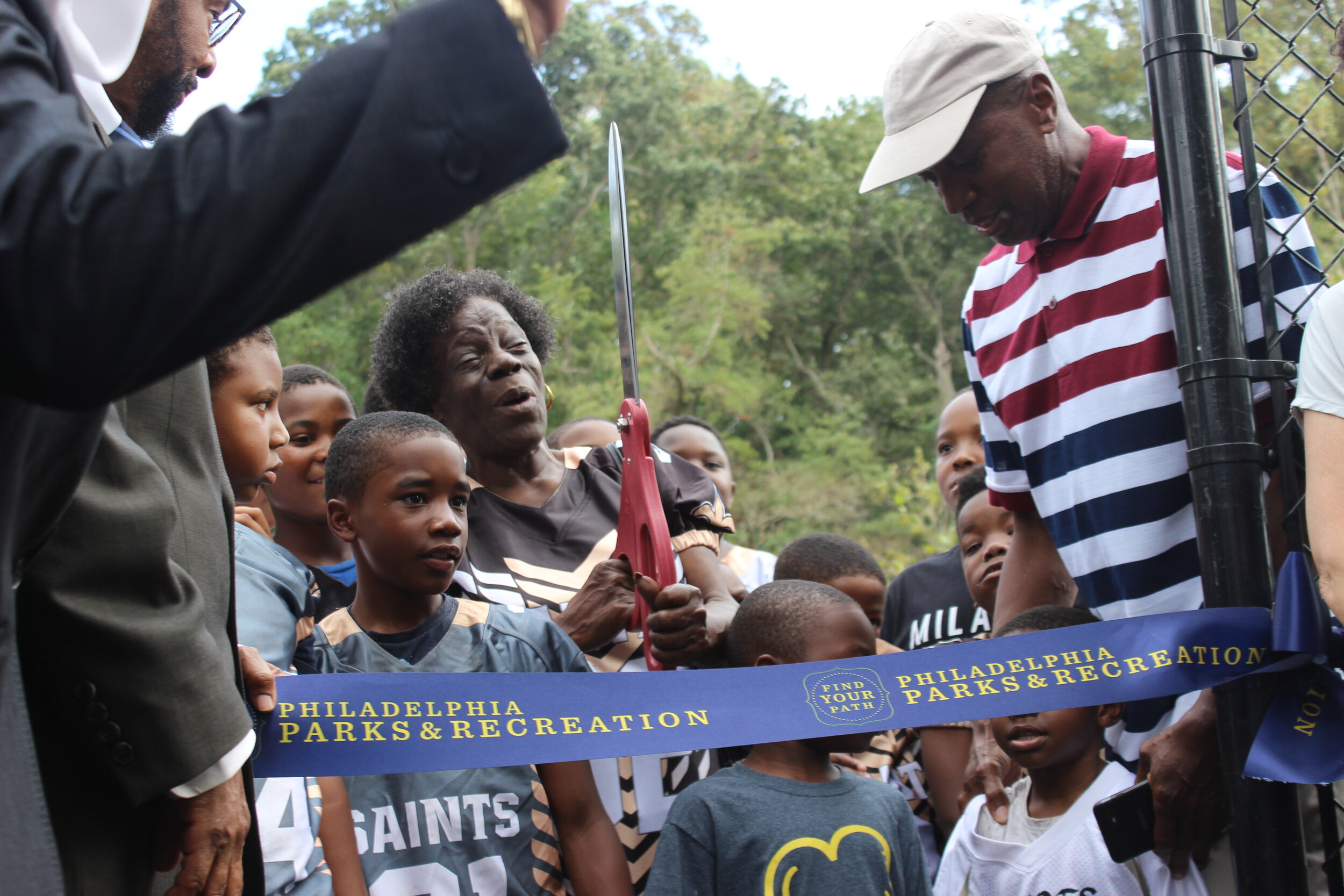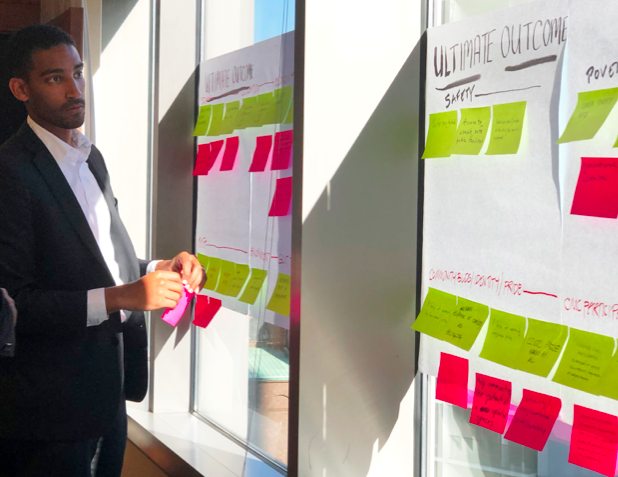Rebuild Theory of Change Evaluation Mapping
Photo Credit: Rebuild
Rebuild’s Evaluation Mapping outlines the Theory of Change underpinning the work of Philadelphia’s Rebuild initiative, a major physical infrastructure reinvestment plan for the city’s libraries, recreation centers, playgrounds, and parks. Launched in 2016, Rebuild set out to focus on more than just design and construction, but rather to address an ambitious set of civic and economic development goals. Reflecting this focus, urbanAC was retained to construct a Theory of Change that provides a structure for monitoring and evaluating the Rebuild by mapping out the short-term and intermediate steps that need to occur to achieve Rebuild’s goals and by identifying how to track progress through each step.
Monitoring is critical for determining if the Rebuild is moving in the intended direction and at the anticipated pace, enabling course correction and refinement of the Program to ensure success. Identifying monitoring and evaluation questions at the start of the program is important for prioritizing data collection on the most critical information for the Program’s administrators, funders, operators and evaluators. Building the Theory of Change also provides critical insight into the larger role of investing in civic infrastructures and its economic, social and health impacts.
The initial Theory of Change workshops held with Rebuild and William Penn Foundation staff revealed a robust set of long-term outcomes, as well as outcomes specific to Rebuild’s three core goals. These are to:
Make physical improvements to parks, recreation centers, and libraries.
Promote diversity and economic inclusion. (Rebuild will support minorities and women who work or want to work in the design and construction industries.)
Engage with community members to leverage their knowledge, power, and expertise.
The broad goals of Rebuild define each of the Program's Theory of Change outcomes, supported by a literature review and case study research. These outcome categories include:
Civic Pride and Inclusion
Civic Participation and Public Trust
Economic Inclusion: Workforce
Economic Inclusion: Business Development
Economic Inclusion: Community Development
Healthy Lifestyles and Environments
Education
Public Safety


